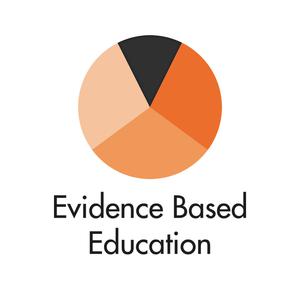
The Evidence Based Education Podcast
Evidence Based Education
A podcast from the EBE team discussing how evidence-based education can have a practical and achievable positive impact on pupil outcomes
- The Elements of Great Teaching – Dimension 1, Element 2
In Episode 11 of The Elements of Great Teaching podcast series, Adam Kohlbeck and I look into the essential role of Dimension 1: Understanding the content with a focus on Element 2: Pedagogical content knowledge from the Model for Great Teaching.
This episode focuses on understanding the curriculum you’re teaching and how it’s learned – exploring the sequencing of content and its subject-specific requirements.
We highlight why this element of great teaching is vital and offer clear, evidence-backed steps you can take to enhance your approach.
Listen Below
3 February 2025, 6:00 am - 1 hour 9 minutesThe Elements of Great Teaching – Dimension 2, Element 1
In the tenth episode of The Elements of Great Teaching podcast series, Adam Kohlbeck and I take look at the theory behind one of the key elements of great teaching, balancing it with practical applications for educators. Specifically, Dimension 2: Creating a supportive environment with the focus on Element 1: Teacher – Student relationship from the Model for Great Teaching.
The discussion revolves around:
- Theoretical Insights: Why this element is critical for teachers and learners alike.
- Practical Applications: What teachers can do to develop their skill in this area.
- Student Perspectives: How these strategies resonate with students in the classroom.
- Actionable Ideas: Practical tips that teachers can immediately try out in their teaching practice.
We aim to connect the deep knowledge educators need with the tangible steps they can take to enhance their teaching.
Listen Below.
27 January 2025, 6:00 am - 1 hour 8 minutesThe Elements of Great Teaching – Dimension 4, Element 1
In episode nine of The Elements of Great Teaching, Adam Kohlbeck and I delve into Dimension 4: Activating Hard Thinking, focusing on Element 1: Structuring from the Model for Great Teaching.
What Does Structuring Mean?
Structuring goes beyond simply listing objectives or writing lesson aims. It’s about carefully designing and sequencing learning tasks to show students not only what they’re learning but also how these tasks contribute to their goals. Great teachers share learning aims in ways that help students understand what success looks like.
From Theory to Practice
In this episode, we highlight the importance of moving away from abstract statements and instead helping students connect tasks to learning goals. Adam provides a practical lens, sharing strategies that educators can use to make learning aims meaningful and actionable for their students.
Listen Below
Find out how structuring can lead to deeper understanding and better outcomes for your learners. Listen now and share your thoughts with us on social media.
20 January 2025, 6:00 am - 1 hour 1 minuteThe Elements of Great Teaching – Dimension 2, Element 4
In episode eight of The Elements of Great Teaching, Adam Kohlbeck and I turn our focus to Dimension 2: Creating a Supportive Environment, exploring Element 4: Creating a Climate of High Expectations from the Model for Great Teaching.
This element emphasises fostering a classroom culture where students feel supported to take risks and challenge themselves. It’s about balancing high expectations with high trust so learners believe it’s safe to “have a go” and are encouraged to attribute success or failure to things they can control.
In the episode, we dive into the research behind this element, explaining the “why” behind high expectations and how they connect to building student confidence and motivation. Adam brings a practical perspective, sharing how teachers and school leaders can apply these ideas effectively in their classrooms.
Listen Below
Discover actionable strategies to create a supportive, high-challenge learning environment that empowers your students. Let us know your thoughts on social media after listening!
13 January 2025, 6:00 am - 57 minutes 16 secondsThe Elements of Great Teaching – Dimension 1, Element 1
In Episode 7 of The Elements of Great Teaching, Adam Kohlbeck and I delve into Dimension 1: Understanding the Content, focusing on Element 1: Content Knowledge from the Model for Great Teaching.
This element isn’t just about knowing facts—it’s about developing a flexible and fluent understanding of the subject you’re teaching. As we explore in the episode, it involves deep, connected knowledge and critical thinking about questions: It’s about knowing the content so thoroughly that you can adapt explanations, make connections between topics, and help students think critically.
Listen below.
6 January 2025, 6:00 am - 1 hour 16 minutesThe Elements of Great Teaching – Dimension 3, Element 2
Welcome back to The Elements of Great Teaching podcast series, where we continue breaking down the elements of what makes great teaching. In this sixth episode, Adam Kohlbeck and I focus on Dimension 3: Maximising Opportunity to Learn, with a spotlight on Element 2: Consistent and fair application of expectations from the Model for Great Teaching.
We highlight the importance of clarity and fairness. When students understand the rules and know they’ll be enforced predictably, classrooms become spaces where focus and learning can flourish. Adam and I explore how applying these principles consistently helps students feel secure, while also reducing behaviour issues.
Listen to the full episode below to learn more about creating a classroom culture of trust and clarity.
16 December 2024, 3:00 pm - 1 hour 6 minutesThe Elements of Great Teaching – Dimension 2, Element 3
Welcome back to The Elements of Great Teaching, where we explore the essential elements that make great teaching impactful. In this fifth episode, Adam Kohlbeck and I turn our attention to Dimension 2: Creating a Supportive Environment, with a focus on Element 3: Promoting Learner Motivation from the Model for Great Teaching.
Motivation is the driving force behind effective learning, and teachers play a key role in creating an environment that fosters it. In this episode, we discuss how to nurture student motivation by cultivating feelings of competence, autonomy, and relatedness—three essential psychological needs that fuel engagement and persistence in learning.
What strategies do you use to motivate your students? Share your thoughts and experiences in the comments or on social media. We’d love to hear how you bring this element to life in your classroom!
Listen below.
9 December 2024, 3:00 pm - The Elements of Great Teaching – Dimension 4, Element 2
Welcome back to The Elements of Great Teaching, where we continue exploring the evidence-based practices of effective teaching. In this fourth episode Adam Kohlbeck and I dive into Dimension 4: Activating Hard Thinking, with a focus on Element 2: Explaining from the Model for Great Teaching this time with a special guest!
Great teaching hinges on the ability to present and communicate ideas clearly and in ways that resonate with students. In this episode, we unpack what it means to deliver concise, engaging explanations that connect new learning to what students already know, making it accessible and meaningful.
Listen below to explore how explaining can transform your teaching and help students engage in deeper, more meaningful learning.
How do you ensure your explanations resonate with your students? Share your tips and reflections in the comments or on social media. We’d love to hear from you!
2 December 2024, 3:00 pm - 1 hour 2 minutesThe Elements of Great Teaching – Dimension 1, Element 3
Welcome back to The Elements of Great Teaching podcast series, where we explore the evidence-informed principles that underpin effective teaching. In this third episode, Adam Kohlbeck and I focus on Dimension 1: Understanding the Content, zeroing in on Element 3: Knowledge of Curriculum Tasks from the Model for Great Teaching.
Teaching isn’t just about delivering content; it’s about delivering the right content in the right way. This episode dives into why understanding the curriculum deeply—and knowing how to connect it with meaningful tasks, assessments, and activities—is key to fostering student learning.
Listen below to Episode 3. Let us know your thoughts on the episode—how do you incorporate this element into your practice? Share your ideas and reflections in the comments or on social media!
25 November 2024, 3:30 pm - 1 hour 3 minutesThe Elements of Great Teaching – Dimension 3 Element 1
Welcome back to The Elements of Great Teaching podcast series, where we unpack the essential elements of effective teaching and explore how they translate into real-world classroom practice. In this second episode, Adam and I delve into Dimension 3: Maximising Opportunity to Learn, with a focus on Element 1: Managing Time and Resources from the Model for Great Teaching.
Efficient time and resource management in the classroom might not always be the first thing that comes to mind when we think of great teaching, but it’s a critical foundation for student success. Teachers who skilfully manage their time and resources ensure that every moment in the classroom counts, maximising both productivity and learning outcomes. In this episode we discuss the practical strategies that teachers can use to optimise time, reduce wasted moments, and create a structured environment that supports learning.
Listen below to start maximising opportunities to learn in your classroom.
18 November 2024, 3:30 pm - 51 minutes 42 secondsWelcome to The Elements of Great Teaching Podcast Series!We're excited to bring you the first episode of The Elements of Great Teaching podcast series. In each episode alongside Adam Kohlbeck we break down the elements of the Model for Great Teaching, from a learner's perspective sharing insights and real-world applications to enhance classroom practice. In this inaugural episode, Adam and I dive into Dimension 1: Understanding the Content, specifically focusing on Element 4: Knowledge of Student Thinking. We discuss why understanding students' thought processes—their strategies, common misconceptions, and typical sticking points—is crucial for effective teaching. This knowledge helps teachers anticipate where students might struggle and enables them to provide more tailored support, leading to a deeper and more lasting grasp of the content. By better understanding student thinking, educators can create learning experiences that resonate, ensuring students aren’t just memorising but truly comprehending the material. Listen below to hear how mastering this element can transform your teaching and help students build a strong foundation for future learning.11 November 2024, 3:30 pm
- More Episodes? Get the App
Your feedback is valuable to us. Should you encounter any bugs, glitches, lack of functionality or other problems, please email us on [email protected] or join Moon.FM Telegram Group where you can talk directly to the dev team who are happy to answer any queries.
 Education Bookcast
Education Bookcast
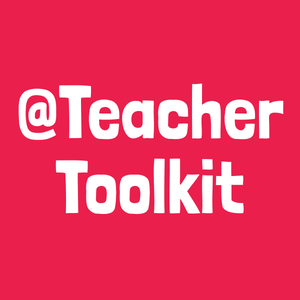 Podcasts – TeacherToolkit
Podcasts – TeacherToolkit
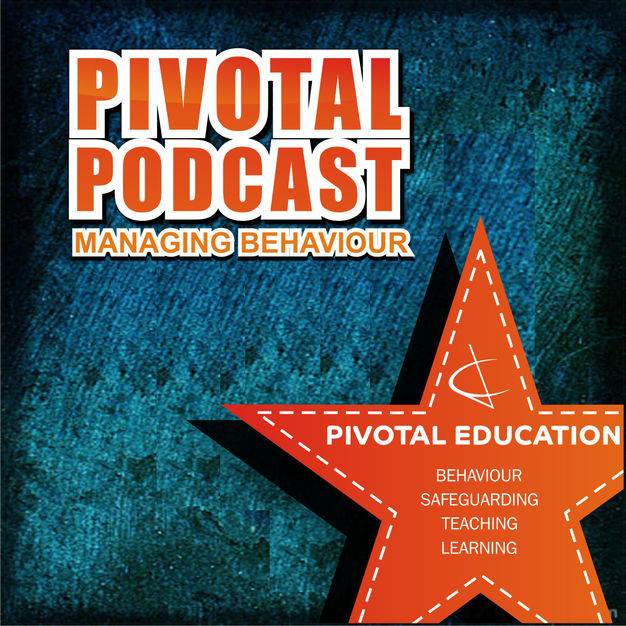 Pivotal Podcast
Pivotal Podcast
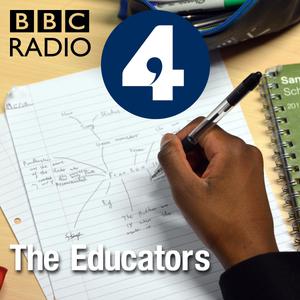 The Educators
The Educators
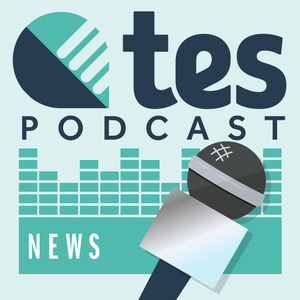 Tes News
Tes News